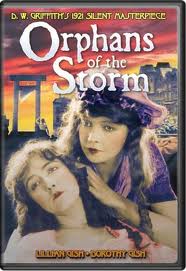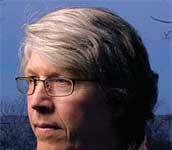
That’s the title of an article in Peter Brantley’s blog at Publishers Weekly. The entire article is well worth your time.
The UC Berkeley Center for Law and Technology(BCLT) is among the most eminent study centers for intellectual property (IP) law. Coordinated by Professor Pamela Samuelson, this last week it pulled together approximately 200 highly accomplished and well-spoken legal scholars, practitioners and librarians in a small conference on orphan works, “Orphan Works and Mass Digitization.”
Obstacles and opportunities.
The conference started with a series of talks on the dysfunctions of current copyright law, with its propensity to generate orphans. The overall consensus, most succinctly aired by Brewster Kahle of the Internet Archive, is that the the problem is so pervasive and the barriers to a comprehensive resolution so high — while networked communications make sharing ever more straightforward — that institutions are increasingly prone to adopt a “Damn the torpedoes” approach. For these panelists, the prospect of new legislation attempting to facilitate use of material with dim rights status is often scarier than the status quo given political deadlock; further, uncertainty over the use of these materials is endemic but the risk is fairly low, in part because libraries, archives, and museums (LAMs) are respectful and conservative. At the same time, the cultural value is often tremendous.
For examples of materials with high merit and difficult rights status, Bruce Hartford of the American Civil Rights Movement website highlighted the sheer impossibility of determining rightsholders for many archival materials: internal documents created by Student Nonviolent Coordinating Committee (SNCC) in the 1960s are orphans because SNCC no longer exists. A photograph taken by an unknown prisoner in a Southern jail of another prisoner is an orphan because the copyright is held by the unknown prisoner who took the original photograph. In a similar vein, Rick Prelinger aired a color video, possibly shot by an employee of the War Relocation Authority, of the 1944 release of Japanese-Americans interned at the Jerome War Relocation Center in Arkansas.
Thanks to Michael von Glahn for the link.
































It’s totally and completely insane that works of art and works of cultural or historical significance are impossible to access simply because the so-called “rights holder” is unknown or impossible to verify.
This sorry state of affairs exists entirely because it benefits large corporations to keep copyright as restrictive as possible. And for all intents and purposes, under the current American system of government, legislators and the judiciary work for their corporate masters.
Think of the incredible benefits of setting up a central registry of copyright. If something is registered as copyrighted it can be found and the owner can be compensated or negotiated with.
If it’s not registered then it’s not under copyright. Simple. But such a system will never be implemented in this country where absolutely nothing really matters except the pursuit of maximum profits.
I like the copyright registry idea above, but how about a modification: if it’s not registered, it doesn’t need to necessarily lose copyright protection. But whoever wants to use the material could make a good faith effort to find the copyright holder — and searching the database would presumptively satisfy that — so if it is not registered there, they may use it, until and unless the rights-holder steps forward and claims it.
Wouldn’t that give us protection of the rights of people who care to protect them, and the free use of the material absent such intent?
In the case of abandoned businesses or authors that are deceased without heirs, I think it should fall into the public domain (again, unless someone steps forward to claim it).
P.S. I went to Berkeley Law and took a class with Prof. Samuelson. Not that I really get bonus points for my argument because of that, but kinda cool to relate to something in the article. =)
Paging critics of the Google Grab to this thread; please comment on situation in light of your contention that A: appropriating orphan works is an unconscionable violation of authors’ rights, and B: if anyone actually cared about these works then they wouldn’t be orphans.
There are two different situations here, and they’re being mashed together inappropriately.
First, books and most published written works are, in general, registered already. The Library of Congress and the Copyright Office maintain that database, and it’s searchable. The contact information is often out of date, but in this day and age, it’s not all THAT hard to update it, if you really need to do so.
Second, unpublished works are not registered, although the creator of those works has rights, and it’s quite unlikely that any search of a registry database will turn up that creator. How then could that possibly be considered a good faith effort?
Is there a societal value to gaining access to the unpublished works? Obviously. But does it trump the rights of the creator? I don’t think so. This is about more than money, it’s also about control. There are certainly uses that each of us wouldn’t permit for our work. Should we be denied that right?
And let’s not get all confused about large corporations. Very few of the rights holders for the vast sea of copyrighted works are corporations. Most of the control has reverted to the individuals who own those rights, and most of the time, the remaining corporate rights holders are very small, mom-and-pop shops that can’t afford to sustain the depredations of the oh-so-righteous folks who don’t want to bother clearing them.
There is already an organization that makes clearing micro-grants of rights dead simple. It’s called the Copyright Clearance Center, and universities and other research institutions should be very familiar with it. It’s a prime source for the legit course packs that are routinely sold in their textbook stores.
Let’s not make bad law because we’ve been sold on shortcuts that will have significant unintended consequences.